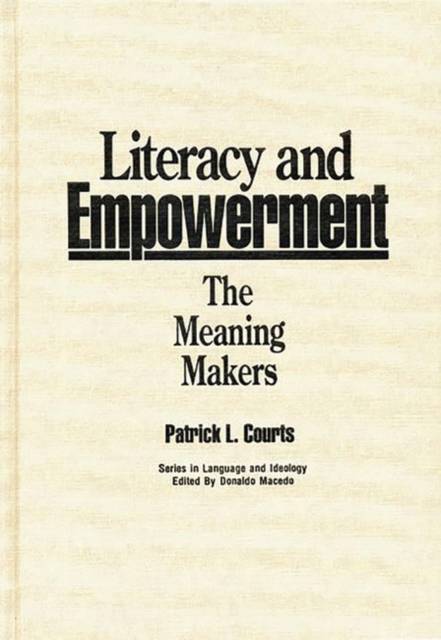
- Retrait gratuit dans votre magasin Club
- 7.000.000 titres dans notre catalogue
- Payer en toute sécurité
- Toujours un magasin près de chez vous
- Retrait gratuit dans votre magasin Club
- 7.000.000 titres dans notre catalogue
- Payer en toute sécurité
- Toujours un magasin près de chez vous
Description
The first volume of the series Language and Ideology, this work explores mature literacy. Patrick L. Courts argues that while by society's standards many people can read well, they are unable to create meaning from the world of oral and written language. His theory derives from psycho- and sociolinguistics, cognitive psychology, philosophy, literary criticism, and whole language theory. Courts criticizes programmed activities, texts, and workbooks--challenging the control that commercial textbook publishers and test-makers exert on education. He shuns overemphasis on methods and offers an alternative approach firmly grounded in theory and aimed at empowering teachers and students.
Courts begins with a discussion of liberatory pedagogy, drawing from whole language theory, the social semiotics of Halliday, reader-response theory, and the ideas of Heidegger and Derrida. The subsequent methodological chapters build a case for what Courts calls a conservative revolution in literacy education: teachers combining a sound base of theory with methodologies to tap students' generative, creative powers. Courts's methodology aims to empower people as meaning makers. This book is valuable to teachers and administrators, textbook publishers, and students of education.Spécifications
Parties prenantes
- Auteur(s) :
- Editeur:
Contenu
- Nombre de pages :
- 216
- Langue:
- Anglais
- Collection :
Caractéristiques
- EAN:
- 9780897892612
- Date de parution :
- 07-10-91
- Format:
- Livre broché
- Format numérique:
- Trade paperback (VS)
- Dimensions :
- 156 mm x 234 mm
- Poids :
- 308 g







